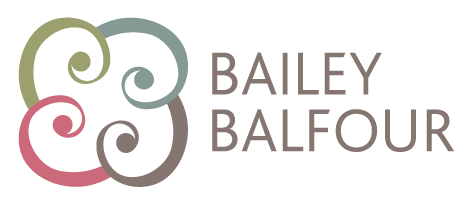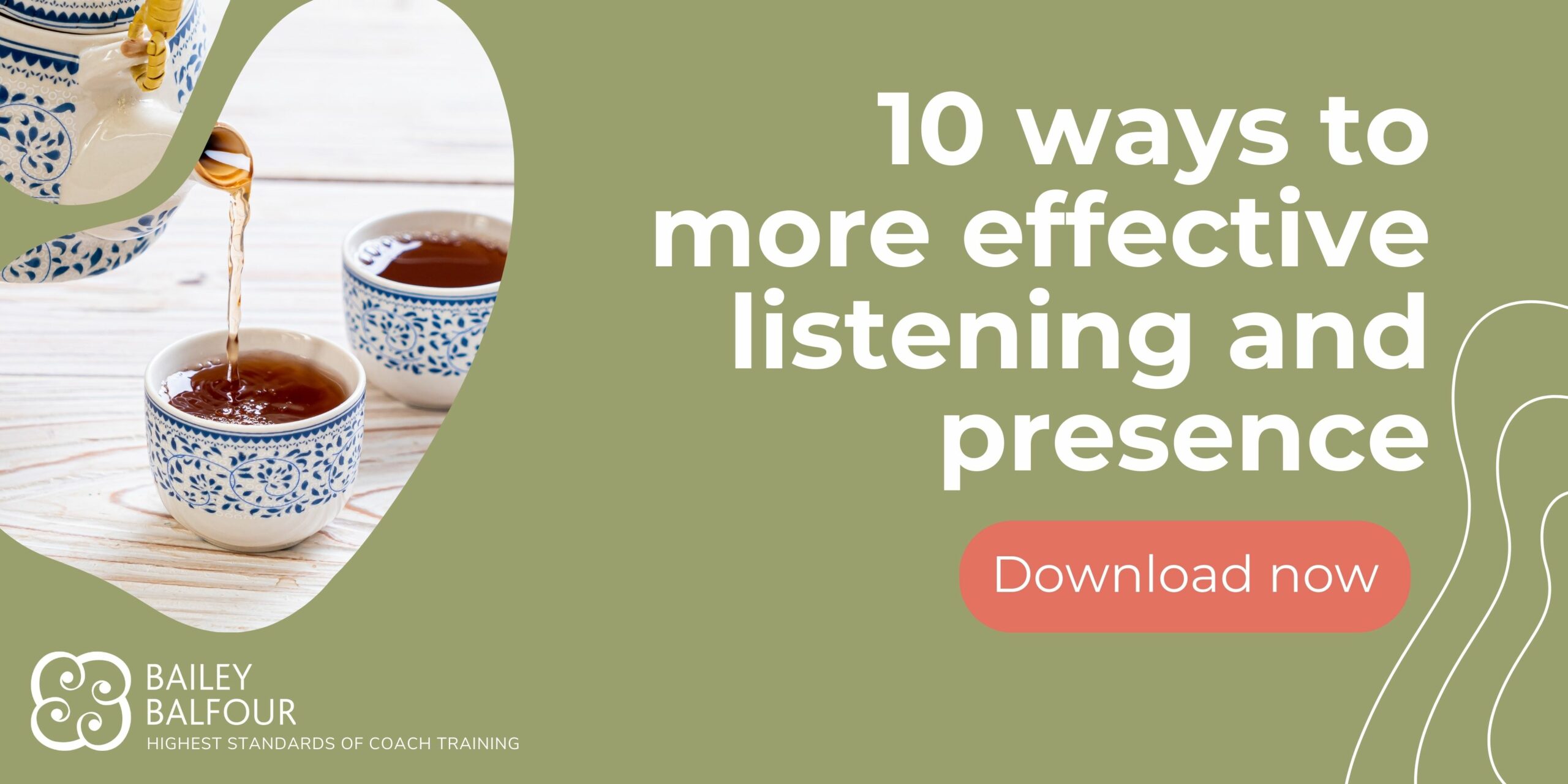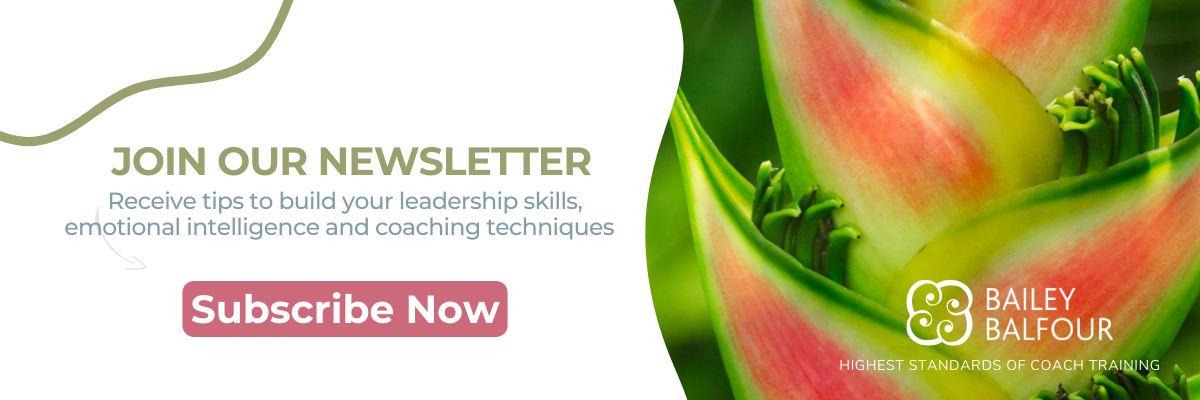
10 ways to more effective listening and presence | Bailey Balfour
I believe that one of the greatest gifts we give others is our presence. Being in the present and in the moment with someone, can be the most profound thing we do in any working day.
I also believe that in many ways, being really present and listening intently is the most important part of being human at work.
Unless we listen, we cannot understand others, we cannot hear their perspectives, ideas, opinions, their concerns, we can’t hear them.
Flipping Listening Patterns
I’d like to start with a story: a leader on a programme we were running recently was coaching in one of our practice groups. In these groups the person who coaches gets feedback on their coaching in a supportive environment. When we were giving this person feedback I described the 80/20 rule we hold in coaching – the coach doing 80% listening and 20% talking and I gently observed how the coach was nearer to 80% talking. This was a moment of awareness for this coach.
A few weeks later the coach described to me how they realised that when they were with their team they also did most of the talking. This person is a senior leader managing a senior team, but often talked instead of listening, gave advice and expected action. It was easy to quickly turn this pattern, around aiming for 20% talking and 80% listening and the impact was immediate. Firstly, the team started sharing their ideas and, of course, they mostly knew what to do, and secondly their productivity increased. As they were listened to, as they were empowered to act, they had been able to take their own ideas and implement them.
It wasn’t complicated, it was simply committing to being quiet and listening with curiosity.
Listening is a choice to be present
The challenge for all of us, and I include myself in this, is that we have to make a decision to listen and be fully present. Listening is an active act. It isn’t passive – it involves focus and energy and commitment and too often we are distracted and busy and find it really hard to offer the kind of presence that is really needed to others.
Presence involves being fully in the moment with the person you are with. Without distraction, without devices, just listening and ‘being’ with the person. It doesn’t have to be for hours – one minute of our full attention and presence with another person can make all the difference.
People can sense when we are with them and when we aren’t. They know when we are listening and they know when we are thinking about somewhere or something else. Even if you are talking to someone on the phone – the other person knows if you are really listening or listening whilst doing emails.
I like to think about presence as an act of being – I am being with this person, and see listening as an act of doing. We are in service of the person we are listening to. And so when I am present and listening I am both being present and doing listening. When I am being present and giving the person I am with my full attention, I am also aware of them as a whole person. I am listening for all they are sharing. I am listening beyond the words.
I feel presence in my body, and listening is more in my mind. Together, they create the ability for us to hear the whole person, presence and listening together help us to access our intuition, to be aware of the other persons feeling and the stories about themselves they are holding or the things they aren’t telling us.
And it really starts with listening.
So – How good is your listening?
I am guessing you might say you are pretty good. Most of us believe we are good – but my own story has shown me how there is always room for improvement.
20 years ago I had the privilege of training with Nancy Kline in what is called the Thinking Environment. I learnt so much from Nancy, through training with her and through her book Time to Think. Just being present with Nancy changed the quality of my listening immeasurably. It has impacted how I teach coaching and how I am with everyone in my life. And I gained 2 life long friends on the journey of our training.
When I started with her I was pretty confident about my listening – but it soon became clear that I was only a surface listener. I was listening, but also listening to myself, all the judgements I had about the other person, and sometimes planning dinner.
An over the 10 days of the training I learnt to tune my ear and presence more fully to the person I was with.
Nancy describes the quality of attention we pay each other as being key to the ability of the other person being able to think well. She believes that we don’t listen to each other long enough. An exercise, which you can try, is too listen to someone for between 3 and 5 minutes without talking at all. You can nod and smile – all you do is give the person your fully attention and listen. This is incredibly hard. What I learnt from doing this over and over again was that I could settle into just listening, into presence, I didn’t have to speak, because when the other person was deeply listened to they started to listen to themselves. They started seeing their own wisdom in a way that they hadn’t before. The very act of not interrupting, of not even asking a questions, means I believe you, the person I am listening to, are an intelligent whole human being who has depths and wisdom waiting to come to the surface. By closing my mouth and paying full attention, I create the environment to do this.
Nancy also holds big store on listening very closely to the words the person is using and reflecting back these, their exact words. Not yours – just theirs. I saw this happening very skilfully in a coaching group this week and the impact on the coaching client was huge. It led to new insights and yet it was so simple.
On our coach certification programme students often talk about how learning to do this well impacts the whole of their lives. Work, home, kids, parents, friends: when we develop our listening muscle – everyone benefits.
Think about yourself as a listener.
When you listen, what are you listening for? Are you listening so you can respond quickly? Are you listening to what the person is saying? Even further, are you listening beyond their words, to their feelings, anxieties, concerns? Or are you listening and wondering when they will finish so you can get back to what you were doing or share your own story?
When we are listening our egos are so often triggered to share our own ideas, or concepts instead of staying with the idea the other person has just shared. A simple trick to help someone know you have heard them is to briefly summarise what they said. Recap and reflect back saying ‘what I heard you say was….’, followed by, ‘have I understood correctly?’
This can be more effective than asking questions – it often triggers the person into extending their thinking, coming up with new ideas or different ways to solve their challenge. Instead of sharing our ideas we simply reflect back. We can also ask “what else do you think about this? what else do you see?
In meeting and day to day interactions, we can also learn to notice this pull between getting straight down to business when we are with people, and take time to connect with people and find out how they are. To tune our presence into each other. ’When we take the time to check in with each other as humans, the work flows, decisions are easier, we are open to listening to different opinions and collaboration improves. Just by taking this time to build trust, listening deeply and being curious about each other.
You could try this now. Go and be with someone near you and ask them how they are? Then be really curious, asking open questions and just holding back and listening – see how this works.
To help you think about how to improve your presence and listening – think back to your own experience. Think of a time recently when you felt really listened to and felt heard.
- What was that like?
- What was the listener doing to leave you with that feeling and experience?
- How did you know they were present with you?
Think also of times when you didn’t felt listening to or heard
- What was the person doing to leave this impact?
- How did you know they weren’t present with you?
I notice in my own world that if I become aware someone isn’t really listening to me I lose my inclination to share, I feel like withdrawing and contributing less.
What about in a virtual world?
- Can you tell whether someone is present or not with you in a virtual world?
For me, when I am on a call and the other person is doing something else I question whether they value me or my time.
As you think about these examples, what can you do to deepen your own presence and listening.
We can all learn to listen more and be more present with others.
Self-awareness and attunement
Another way we can learn to be more present is to become more aware of ourselves. Learning to listen well involves learning to be aware our thoughts and judgements whilst really listening to the other person. It’s called meta-cognition. When I am listening I am aware that my mind is saying things like ‘oh I wouldn’t do – that ie expressing judgement’ or my mind is thinking ‘I know what you should do’ or ‘what time am I supposed to pick the kids up?’ Developing as a listener involves learning to notice these messages in our mind and getting better at tuning them out and bringing our focus and attention to the person we are with. We also do this with self-compassion, not criticsing our selves for not listening, just learning to be more aware and to get better and better at bringing our attention to the other person.
Beyond words
Another key element of listening is that words are really only a small part of our conversation. The person we are with will be expressing much more than the words they are using. Paying attention to what might be beyond the words may help us to understand the other person more. For example, they may be talking about an organisational client they are providing a service to. Their words may seem straightforward – however, if you listen closely you hear some hesitation or concern in their tone of voice. Being curious about this can help them to talk about potential blocks or challenging they are having with this client. Maybe they are intimidated by the client, or maybe they are excited that there is more opportunity than you are currently delivering
Listening is a muscle- build it!
There are a couple of simple exercises you can try to build your listening muscle.
- Next time someone comes to your desk to ask a question, stop everything, turn to face them. Maybe stand up so that you are looking at each other. As you listen resist the temptation to ask question, just listen, then reflect back what you have heard and see what happens.
- At a different time you might listen for different things. Notice the person’s body language – what might this be telling you about their situation? Are they expressing any emotions through language or tone of voice? What words are they using to describe their situation which might give away something more than the actual issue.
- You can try this online too. When someone sends you a chat message, stop what you are doing and be really curious about the person is communicating. Are you hearing all of what they are trying to say? And if you aren’t sure – be curious, maybe even jump on a call with your curiousity.
Learning to listen really well is hard. I encourage you commit to developing your own listening, treat it like a muscle to develop, Don’t be hard on yourself – just aim to listen well more than you do now. Become more aware of your listening and slowly you will notice it becomes more natural.
Ready to refresh your listening skills and truly engage with the people in your life – at work and beyond?
Download our free resource with practical tips and tools that you can apply today:
Do you want to go deeper? Join the many senior leaders who take part in our Accredited Coach Training Certification and over 6 months transform your leadership with coaching skills, and add an internationally recognised accreditation to your resume. Learn more by downloading our brochure here or booking a call with our programme director Jean Balfour here.

Who are we?
Learn more about Bailey Balfour, who we are, our values, and how 22 years of executive coaching experience inspired our acclaimed IFC accredited training programmes. Meet our faculty and discover why you might like to learn with us.

Free Taster
One of the most effective ways to decide whether our programme is the best for you is to experience a short taster – to see what you could expect and get a feel for the different elements of our courses including mentor coaching, our self-directed resources and our learning system. You can enjoy this taster at your own pace at any time so register now.

Book a call
Having a call with Jean Balfour, our programme director, can help answer questions about our pathways in a way that is relevant to you. How will you fit it in around your schedule? How will it speak to your existing role? How could it enhance your skillset for the future in your career? Why is accreditation important? Schedule a call with Jean and answer these questions and take the next step in enrolling.

Upcoming Events and Webinars
Join us in engaging (and free) webinars – from networking to coaching skills, and purposeful questions – there is bound to be an upcoming topic that speaks to you. Register now – and don’t worry – if you can’t make the live session we will send you a recording so that you can enjoy it in your own time.
Making Sense of Work Podcast
How’s Work at the Moment? We all work – and yet we often struggle with work. Even very ambitious people find parts of work difficult. This podcast is for you if you’d like to build a new and better relationships with your working life. Join Jean Balfour and guests as they explore everything to do with our working lives, starting with how do we find our purpose, how do make sense of our organisations and what major movements are we seeing in the workplace today?
About the Author
Jean Balfour is Managing Director of Bailey Balfour and Programme Director of our ICF Accredited Coach Training Programmes. Jean is passionate about helping people to have good conversations both at work and at home. She believes that coaching is a life skill and that you never regret learning to coach.




